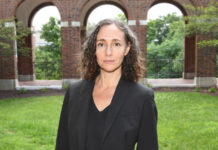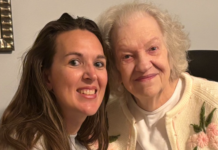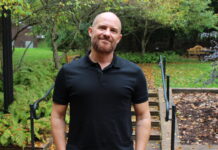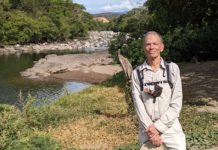The Medicalization of Women’s Suffering: An Interview with Dana Becker
MIA’s Ayurdhi Dhar interviews Dana Becker about how therapeutic culture fails to adequately address women’s suffering.
Responsibility Without Blame in Therapeutic Communities: Interview with Philosopher Hanna Pickard
Hanna Pickard on the elusive middle ground between personal responsibility and systemic factors in our understandings of addiction.
Challenging Western-Centric Child Psychology: An Interview with Nandita Chaudhary
Ayurdhi Dhar interviews Nandita Chaudhary about children’s lives across cultures, the problems with global aid agencies and their interventions, psychology’s bias in the study of children, the limits of attachment theory and more.
Looking Beyond Self-Help to Understand Resilience: An Interview with Michael Ungar
Ayurdhi Dhar interviews Michael Ungar about how complex systems make us vulnerable and how resilience emerges in context-specific ways.
Opening Doors in the Borderlands: An Interview with Liberation Psychologist Mary Watkins
MIA’s Micah Ingle interviews Mary Watkins about reorienting psychology toward liberation and social justice.
Why Some Experts and Patients Want to Rename Schizophrenia: Interview with Raquelle Mesholam-Gately and...
MIA interviews Matcheri Keshavan and Raquelle Mesholam-Gately on their research with service users and consumers on renaming schizophrenia.
The Making of a ‘Madness’ That Hides Our Monsters: An Interview with Audrey Clare...
In this interview, Audrey Clare Farley reveals how our understanding of schizophrenia was built to avoid acknowledging sexual trauma, religious abuse, and racism.
Is Madness an Evolved Signal? Justin Garson on Strategy Versus Dysfunction
Philosopher Justin Garson discusses the potential benefit of looking at madness not as disease or defect, but as a designed feature.
What Does Our Species Require for a Healthy Life? An Interview with Peter Sterling
In his book "What is Health," Peter Sterling asks this provocative question: What does our species require for a healthy life? And can we achieve this with drugs?
Climate Change, Mental Health and Collective Action: An Interview with Jennifer Freeman
In an interview with MIA's Akansha Vaswani, narrative therapist Jennifer Freeman calls for a shift away from individualistic approaches to 'eco-anxiety' and toward responses that connect us all to a counter-tsunami of action for the planet.
Leading Psychology in Existential Times: An Interview with Kirk Schneider
MIA’s Justin Karter interviews humanistic-existential psychologist Kirk Schneider about how psychology can play a role in confronting the political, social, and climate crises facing humankind.
Leaving Biological Psychiatry Behind: An Interview With Rodrigo Nardi
Rodrigo Nardi is a psychiatrist and psychologist. He obtained his psychology degree in the year 2000, and following that, he obtained a certificate in...
From Freud to Fanon: How Daniel Gaztambide is Redefining Psychoanalytic Practice
In this interview, Daniel Gaztambide discusses how decolonial perspectives can transform psychoanalytic practice.
Constructing Alternatives to the DSM: An Interview with Dr. Jonathan Raskin
Dr. Raskin discusses psychotherapists’ dissatisfaction with current psychiatric diagnostic systems and explores alternatives.
How to Know What We Don’t Know: An Interview with Psychologist and Novelist Jussi...
MIA's Gavin Crowell-Williamson interviews the neuropsychologist and novelist Jussi Valtonen about how novels can lead us to see the limits of our understanding.
The Management of Captive Populations with Psychiatric Drugs: An Interview with Anthony Ryan Hatch
Dr. Anthony Ryan Hatch is a sociologist and associate professor of Science in Society, African American studies and Environmental Studies at Wesleyan University, who...
The Social Unconscious and Character Formation in Neoliberal Culture: An Interview with Lynne Layton
MIA’s Javier Rizo interviews Lynne Layton about social psychoanalysis and how normative unconscious processes can help illuminate how oppressive systems get internalized and reproduced.
The Maudsley Deprescribing Guidelines: An Interview with David Taylor and Mark Horowitz
Tapering should be tailored and adjusted to the patient, slowed and more hyperbolic in people who have severe and longstanding reactions.
Can We Move Toward Mindful Medicine? An Interview with Integrative Psychiatrist Natalie Campo
MIA's Madison Natarajan interviews Natalie Campo about integrative psychiatry and holistic approaches to drug tapering and withdrawal.
Healing Youth with Nature and Connection: An Interview with Peter Mayfield
An interview with Peter Mayfield, founder and Executive Director of the Gateway Mountain Center. Peter talks of his journey from mountaineering to his role as an educator and mentor, and how enabling children and adolescents to connect with nature has such a profound effect on their health and wellbeing.
How Therapists Can Help With Psychiatric Drug Withdrawal: An Interview With Anne Guy
MIA's Richard Sears interviews psychotherapist Anne Guy about working with clients withdrawing from psychiatric drugs.
Psych Concepts Creep Into Our Everyday Experiences: An Interview with Nicholas Haslam
MIA’s Ayurdhi Dhar interviews Nicholas Haslam about how psychiatric terms get diluted and creep into everyday language, altering our experiences.
Undisclosed Financial Conflicts of Interest in the DSM-5: An Interview with Lisa Cosgrove and...
On the Mad in America podcast we talk with Lisa Cosgrove and Brian Piper about their BMJ paper entitled "Undisclosed Financial Conflicts of Interest in the DSM-5 TR: Cross-Sectional Analysis"
Getting Pharma Out of Medical Education: An Interview with Dr. Adriane Fugh-Berman
MIA's Gavin Crowell-Williamson interviews PharmedOut founder Dr. Adriane Fugh-Berman about Big Pharma's influence on medical education.
Jim van Os and Peter Groot: When Assessing Antidepressant Withdrawal Methods, RCTs Fall Short
Jim van Os and Peter Groot discuss their paper: “Successful Use of Tapering Strips for Hyperbolic Reduction of Antidepressant Dose: A Cohort Study” published in the journal Therapeutic Advances in Psychopharmacology.

































